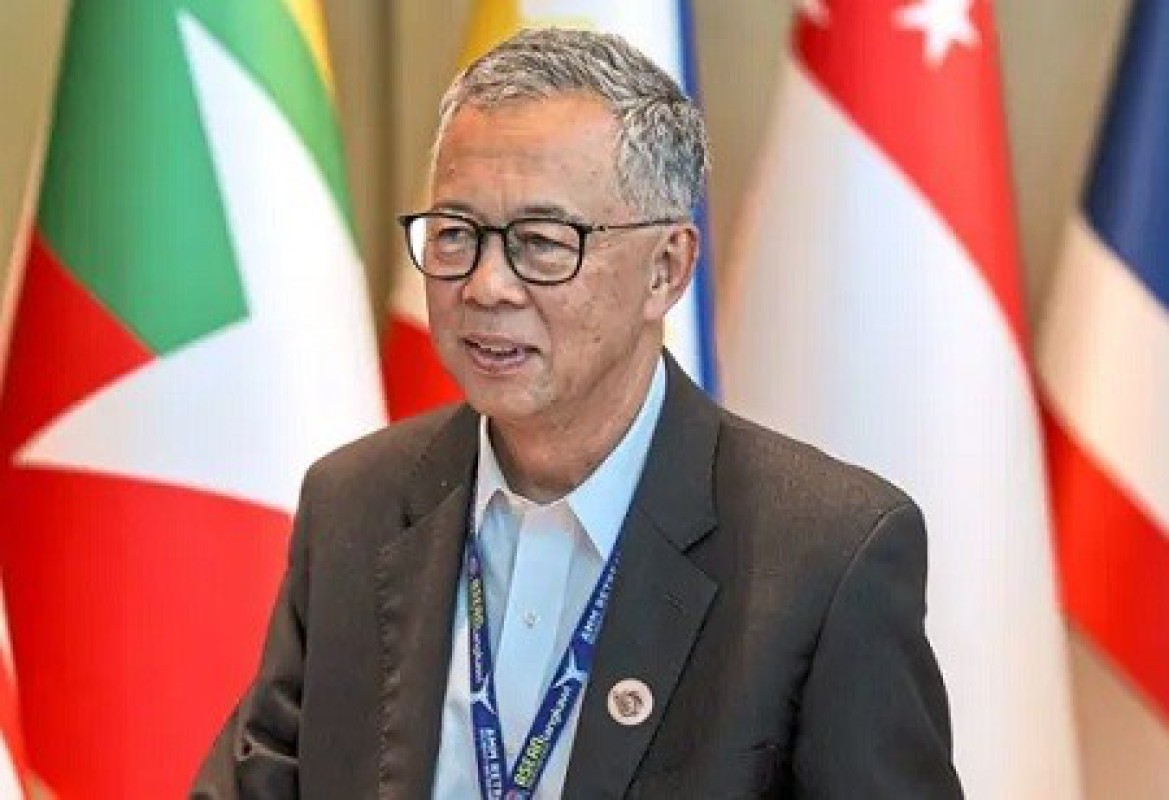ASEAN’s new special envoy: A new hope for Myanmar’s political crisis?

1499

Phyo Lin Aung (NP News) - Feb 10
This week, Malaysia's Special envoy to Myanmar, Othman Hashim, met with officials from the State Administration Council (SAC) and other stakeholders. The efforts to resolve the Myanmar crisis through the ASEAN Special envoy are part of the ASEAN Five-Point Consensus (5PC).
Since April 2021, the leaders of nine ASEAN countries, along with Senior General Min Aung Hlaing, signed this historic consensus, which includes the following points: (1) an immediate cessation of violence in Myanmar, with all parties urged to exercise utmost restraint; (2) constructive dialogue among all parties involved to seek a peaceful resolution in the best interest of the people; (3) the appointment of an ASEAN Special envoy to facilitate the mediation process; (4) the provision of humanitarian assistance to Myanmar; and (5) the special envoy and delegation visiting Myanmar to engage with all concerned parties.
Since 2021, four ASEAN special envoys to Myanmar have been appointed: (1) Dato Erywan Yusof from Brunei, (2) Prak Sokhonn from Cambodia, (3) Alounkeo Kittikhoun from Laos, and (4) currently, Othman Hashim from Malaysia.
In 2023, the ASEAN did not appoint a specific special envoy to Myanmar. Instead, Indonesia, as the ASEAN Chair for that year, adopted a different approach by establishing the Office of the ASEAN Special Envoy on Myanmar. Indonesian Foreign Minister Retno Marsudi led the initiative.
During Brunei’s chairmanship in 2021, ASEAN decided not to invite high-ranking officials or political representatives from Myanmar to ministerial meetings. Yusof canceled a proposed visit when the SAC leader informed him that he would not be allowed to meet with opposition figures. Therefore, ASEAN’s approach through the special envoy in 2021 did not work, apparently.
In 2022, Cambodia assumed the ASEAN Chairmanship and appointed Prak Sokhonn, the country’s Deputy Prime Minister and Foreign Minister, as the new special envoy. Cambodia’s approach to Myanmar differed from that of other ASEAN countries. Sokhonn met with the SAC leader but did not manage to engage the opposition. Additionally, Cambodian Prime Minister Hun Sen’s visit to Naypyidaw and meeting with the SAC leader lent further legitimacy to the SAC government.
When ASEAN's rotating leadership passed to Indonesia in 2023, there were hopes for progress in resolving the Myanmar crisis, but the results were limited. Despite organizing over 180 meetings with Myanmar stakeholders, Indonesia's tenure ended without any significant advancement towards an inclusive national dialogue. However, Indonesia did manage to facilitate a Joint Needs Assessment and the partial delivery of humanitarian aid in May 2023. To maintain momentum, Indonesia introduced the 'troika' approach, comprising Indonesia (the past chair), Laos (the current chair), and Malaysia (the upcoming chair) to monitor progress and assist the ASEAN special envoy in planning future actions.
In 2024, Laos assumed the ASEAN Chairmanship and appointed Alounkeo Kittikhoun as its special envoy to Myanmar. Kittikhoun met with the SAC leader in January 2024, but no significant outcomes were reported. A second meeting took place in May 2024, focusing on cooperation, the conflict, and humanitarian aid. Despite these meetings, the situation in Myanmar remains unresolved, with ongoing violence. Analysts suggest that the ASEAN 5PC no longer aligns with the realities on the ground. Although Laos engaged with Myanmar's leader, ASEAN may not be able to broker a solution.
However, the 5PC remains a key reference. Its implementation, particularly regarding the special envoy and mediation strategies, requires reconsideration to address Myanmar’s political crisis.
In 2025, Malaysia assumed the ASEAN Chairmanship and pledged to prioritize resolving Myanmar’s political crisis. Malaysian Prime Minister Anwar Ibrahim appointed former Thai Prime Minister Thaksin as an advisor to help address Myanmar's political issues. Additionally, veteran diplomat Othman Hashim was appointed as new ASEAN special envoy for Myanmar. Hashim has been involved in Malaysia's governance and diplomacy since 1979 and has held positions in powerful countries such as the United States and China. With his extensive experience, Hashim is regarded as a reasonable diplomat.
As the new ASEAN Special Envoy for Myanmar, Othman Hashim is expected to make significant strides in advancing the 5PC agreement between ASEAN and Myanmar. His visit to Myanmar in February, during which he met with key figures from the SAC to discuss the situation, has generated considerable anticipation.
Interest in Othman Hashim’s trip has grown due to Malaysia’s Foreign Minister Mohamad Hasan’s criticism of Myanmar's planned 2025 elections. "Malaysia wants to know what Myanmar has in mind," Mohamad Hasan said during a press conference after a ministerial retreat in January. He further criticized, "We told them the election is not a priority. The priority now is to cease fire."
Although the ASEAN community prioritizes a ceasefire, Myanmar's current political landscape is too complex to resolve armed conflicts immediately. There are many armed groups taking advantage of the political instability in Myanmar. These groups insurgent in every corner of Myanmar's territory, with varying objectives against the government. Therefore, resolving these armed conflicts and achieving a ceasefire is not easy.
To conclude, other ASEAN special envoys from Brunei, Cambodia, and Laos have worked to implement the ASEAN 5PC to resolve Myanmar's political crisis but have faced significant challenges. From my perspective on Malaysia’s role as the Chair of ASEAN, it will be interesting to see how Othman Hashim, with his extensive diplomatic experience, navigates the complexities of the 5PC and seeks tangible progress in Myanmar.